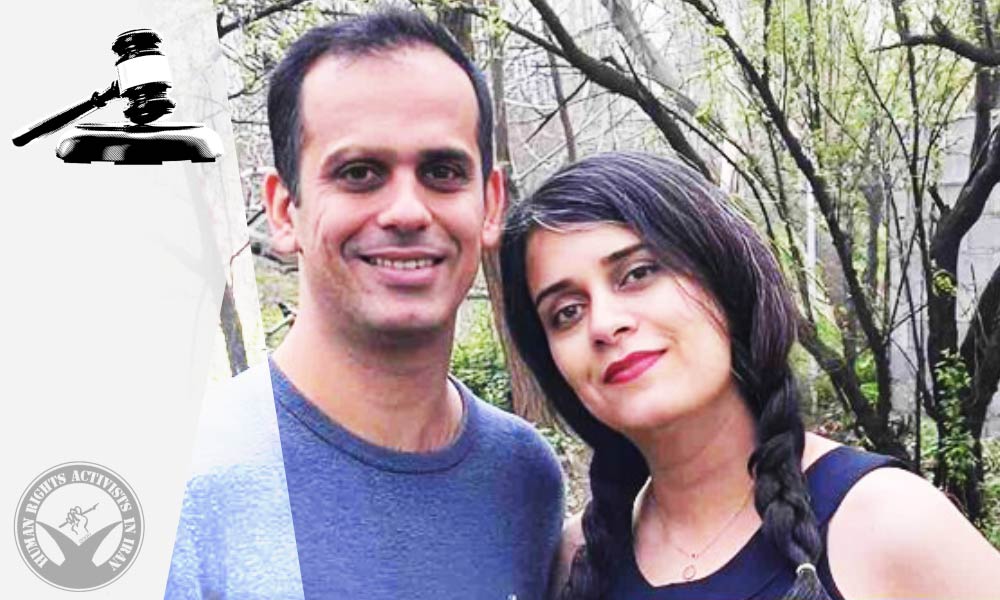Source: www.en-hrana.org

Vesal Momtazi and Anisa Samieian, a Baha’i couple, have been collectively sentenced to a nine-year and six-month prison term by the Rasht Revolutionary Court.
According to the verdict issued on June 13 by Branch 3 of the Rasht Revolutionary Court, Mrs. Samieian received a sentence of seven months and 16 days for “propaganda against the regime,” along with three years and six months for “engaging in educational activities and propaganda against Sharia law.” Meanwhile, Mr. Momtazi has been sentenced to seven months and 16 days for “propaganda against the regime,” one year and three months for “insulting the Supreme Leader of Iran,” and three years and six months for “insulting Sharia law.” In addition, he has been fined 38 million tomans. Both individuals are also subjected to social deprivations for a period of ten years. If these verdicts are upheld on appeal, each of them will serve three years and six months in prison.
On November 4, 2022, security forces conducted a search of their residence, resulting in their arrest. Mr. Momtazi was released on bail after his arrest on December 6, 2022. Mrs. Samieian, who was pregnant at the time, was granted release on bail following two interrogation sessions. It is important to note that this Baha’i couple has two young sons, aged five and three months.
According to HRANA annual report, from the total human rights reports regarding the violation of religious minorities’ rights, 64.63% belonged to the breach of the rights of Baha’is.
According to unofficial sources, it is estimated that more than 300,000 Baha’is live in Iran, but the Iranian Constitution recognizes only Islam as the official religion, in addition to Christianity, Judaism, and Zoroastrianism. Bahai faith is not considered legitimate by the authorities, and the rights of Baha’is in Iran have been systematically violated for years.
The deprivation of the freedom to practice their religion is a breach of Article 18 of the Universal Declaration of Human Rights and Article 18 of the International Covenant on Civil and Political Rights. The United Nations covenant holds that every person has the right to freedom of religion, freedom of converting religion, as well as freedom of expression, individually or collectively; openly or secretly.
Leave a Reply